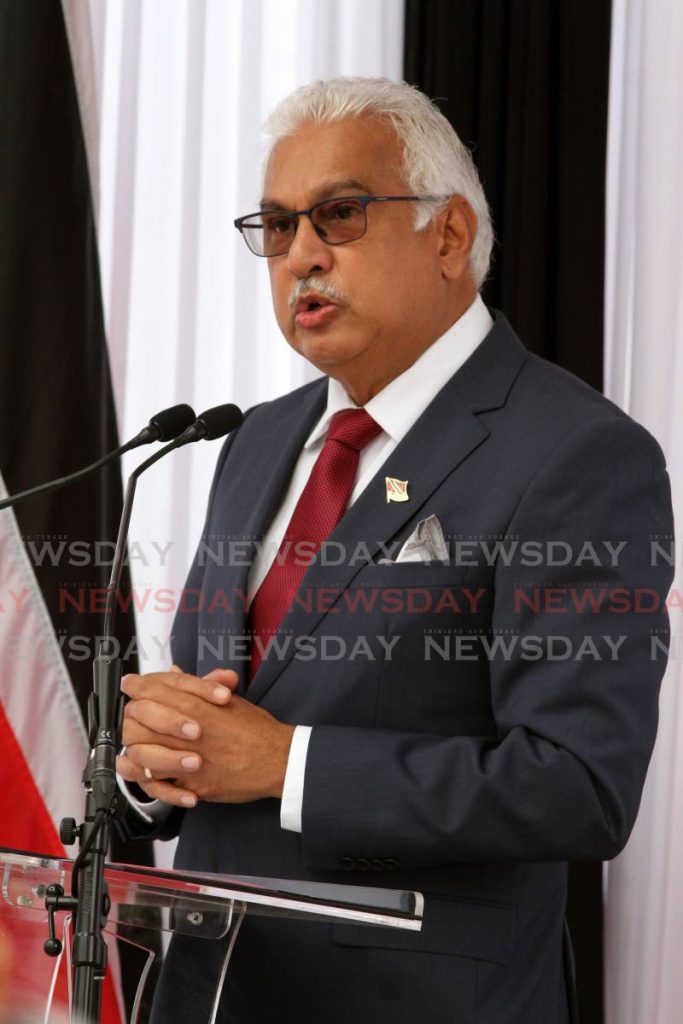Deyalsingh: TT in third wave of pandemic

HEALTH Minister Terrence Deyalsingh said TT is experiencing its third wave of the covid19 pandemic. He said vaccine uptake remains low and urged people to get vaccinated
He said the first wave would have occurred between August and October 2020 and the second wave would have taken place between June and July this year.
He reminded vaccinated people to remain on their guard and follow the health protocols. He said the unvaccinated had to be extremely careful. He said vaccination remained voluntary and was highly recommended.
“For the last two-three weeks we have seen consistent numbers of 6-800 first doses of a two-dose regime, plus another 3-400 J&J doses, with a total of 1,200 daily doses Monday to Friday,with the figure lessening on weekends.
“The extra deaths reported did not seem to have a lasting effect, as the figures went up by 200 on the Monday, and then dropped back down.”
Deyalsingh reminded the population that those who were eligible for the third primary shot were people over 60 regardless of health status, as well as those under 60 moderately or severely immune-compromised.
"These include persons with active cancers, - solid and blood cancers on immuno-suppressive drugs, transplant recipients, dialysis patients, HIV patients, and people on immuno-suppressive drugs. People with asthma, diabetes, hypertension, are not considered as needing an additional dose. You must have a referral letter from your doctor or specialist to get the dose if you fall into one of these categories."
Further information can be found at https://health.gov.tt/additional-primary-dose-of-a-covid-19-vaccine
Principal medical officer Dr Maryam Abdool-Richards said over the last 36 days the ministry had noted a trend where people were very ill when they decided to come to the health care system. She reminded people of the signs to look for when they or their relatives were ill.
“Signs of decompensation include an increase in respiratory rates, an increase in a person’s pulse over 100 beats per minute, a fall in oxygen measured by pulse oximeters, fever, decreased consciousness, fatigue, a loss in taste and smell. When an ambulance is called, a specialist team and consultants go with them, they assess the patient and determine the need for hospitalisation.”
Eastern Regional Health Authority (RHA) CEO Ronald Tsoi-a-Fatt said the RHA was mirroring the rest of the country with a rise in the number of cases at all its facilities, including the Sangre Grande Hospital and its satellite accident and emergency facilities in Rio Claro, Mayaro, and Toco.
“In Nariva/Mayaro we have 215 active home quarantine cases and in St Andrew/St David we have 380. At Sangre Grande Hospital upon admittance, patients are severely ill when they come in. We start with our triage system, we use the Canadian triage and acuity scale to determine the level of illness and severity and that helps us to assign how we take care, we then stream them into the covid or ordinary health care stream. We have increased the number isolation areas for covid to preserve the separation of covid19 cases from normal stream cases, so our accident and emergency is now segregated to provide for that separation. Acknowledging the increase in cases, we have provided additional ward/ICU level beds to be able to hold patients pending transfer into the parallel health care system.”
He said 95 per cent of the people coming in for HDU and ICU care are unvaccinated. He said there was low vaccine uptake on the north coast, with ten to 19 per cent of certain communities being vaccinated.
“There’s a big implication for the villagers and visitors. We are asking for beaches to be opened but what is the implication to villagers and villagers if this is done?”


Comments
"Deyalsingh: TT in third wave of pandemic"